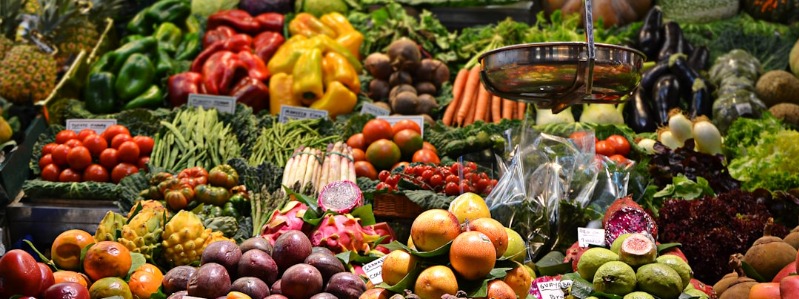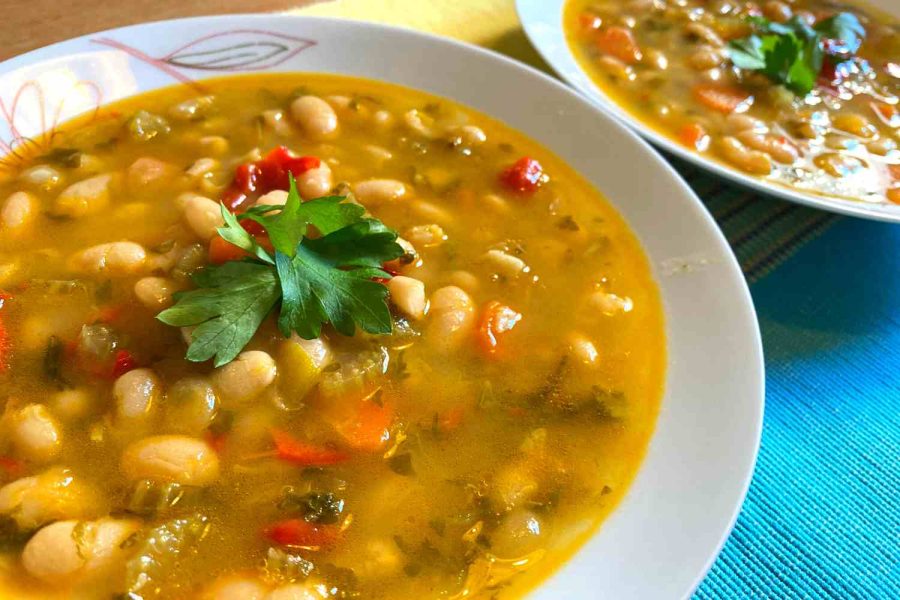High-Protein Breakfast, Lunch, Dinner, and Snack Ideas for Weight Loss: Vegetarian, Vegan, Gluten-Free, and Low-Carb Recipes.
If you’re on a journey to lose weight or are recovering from bariatric surgery, I know how overwhelming it can feel to make the right food choices. One thing that’s often recommended—and for good reason—is focusing on high-protein meals. Protein isn’t just a buzzword; it’s a real powerhouse when it comes to supporting weight loss, keeping hunger at bay, and helping your body recover after surgery. This guide will walk you through some simple, delicious, and practical high-protein meal ideas to make things a little easier for you.

What Are High-Protein Meals and Why Do They Matter?
Let’s start with the basics. High-protein meals prioritize protein-rich foods like lean meats, fish, eggs, dairy, beans, or plant-based proteins like tofu and quinoa. But why is protein so important? Well, when you’re trying to lose weight or recovering from bariatric surgery, protein does a lot of the heavy lifting. It helps repair muscle, keeps you feeling fuller for longer, and gives your body the strength it needs to heal properly.
When should you eat high-protein meals? Ideally, every meal and snack should have some protein in it, especially after surgery or if you’re trying to lose weight. Breakfast is a great place to start because it sets the tone for your hunger and energy levels throughout the day.
Why High-Protein Meals Are Essential for Weight Loss and Recovery
Think of protein as your body’s secret weapon. After surgery, your body needs protein to heal and rebuild, and it’s just as crucial for keeping muscle mass when you’re losing weight. Without enough protein, you might lose muscle instead of fat—and that’s something we really want to avoid.
Focusing on protein is even more important for those who’ve had bariatric surgery because it helps your body adjust to smaller portions while still getting the nutrition you need. Protein helps you feel satisfied, reducing the temptation to overeat or snack on less nutritious foods. But don’t worry about feeling deprived—you don’t have to eat bland, boring meals. We’re going to explore plenty of delicious options!
Can you gain weight on a high-protein diet? It’s possible if you’re overeating or choosing unhealthy protein sources, but that’s not our goal here. Stick with lean, whole food sources and appropriate portions, and you’ll be on track.
Easy, High-Protein Meal Ideas for Every Part of Your Day
I know meal planning can feel like a lot of work, especially when you’re trying to stick to a new way of eating. But it doesn’t have to be complicated. Below are simple, tasty meal ideas that will help you hit your protein goals while supporting weight loss or recovery. Plus, they’re family-friendly, so you don’t have to make separate meals.
High-Protein Breakfast Recipes
Starting your day with a good dose of protein can really make a difference in how you feel. If you’re recovering from surgery, something light and easy to digest might be best, but you can still pack in the protein.
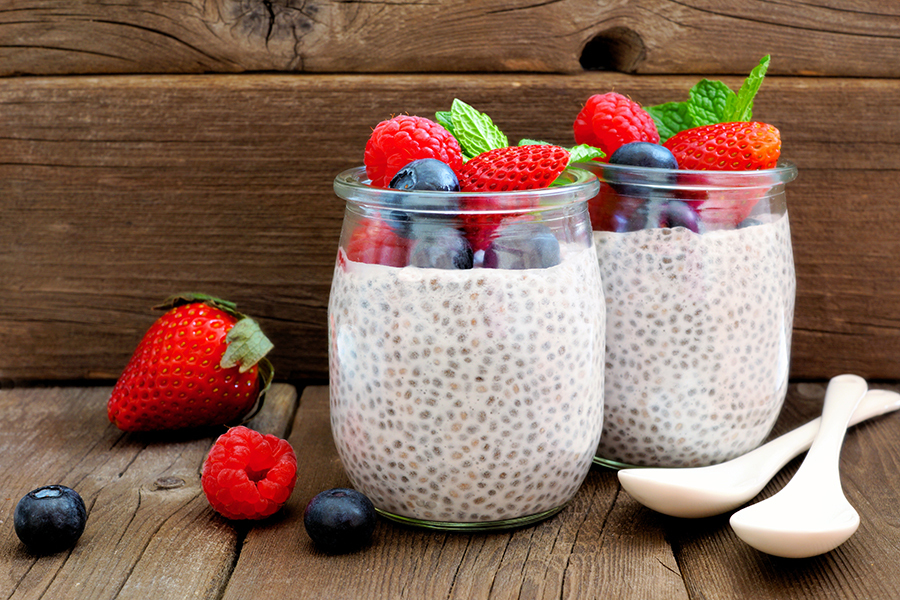
- Scrambled Eggs with Spinach and Cheese: Eggs are a go-to for a reason. You can add a handful of spinach and a sprinkle of cheese for extra protein and flavor.
- Greek Yogurt with Chia Seeds and Berries: This is great for a quick, satisfying meal. Greek yogurt is high in protein, and chia seeds add both fiber and protein to keep you full.
- Protein Shakes: A lifesaver if you’re short on time. Blend your favorite protein powder with some almond milk and a handful of spinach or berries. You’ll get a nutrient-dense meal that’s easy on your stomach.
High-Protein Lunch Recipes
Whether you’re at home or need something you can take on the go, these lunch ideas will keep you satisfied and energized without weighing you down.
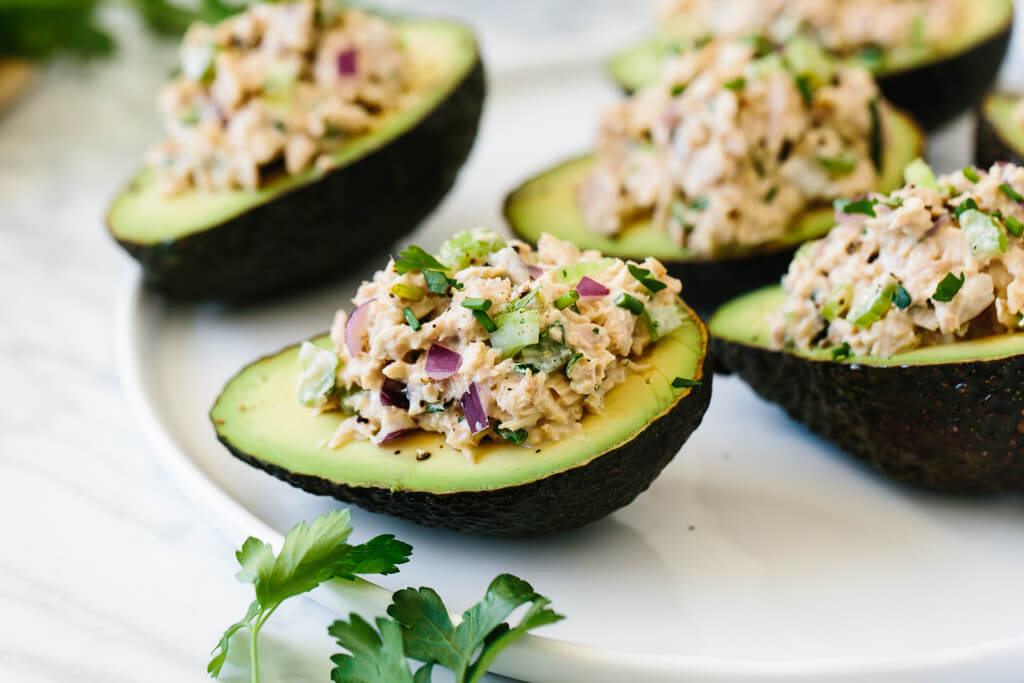
- Tuna Salad with Avocado: Mix canned tuna with a bit of Greek yogurt or light mayo, add diced avocado, and toss it all together with mixed greens. It’s simple, creamy, and packed with protein.
- Chicken Lettuce Wraps: Skip the tortillas and use large romaine or butter lettuce leaves to wrap grilled chicken, peppers, and a light sauce. You’ll get crunch, flavor, and plenty of protein with fewer carbs.
- Quinoa and Black Bean Salad: Quinoa is a complete protein and works great with black beans, chopped veggies, and a zesty lime dressing. It’s a satisfying, plant-based option that’s still high in protein.
High-Protein Dinner Recipes
Dinner doesn’t need to be heavy to be satisfying. These recipes will help you end the day on a healthy note, whether you’re cooking for yourself or the whole family.
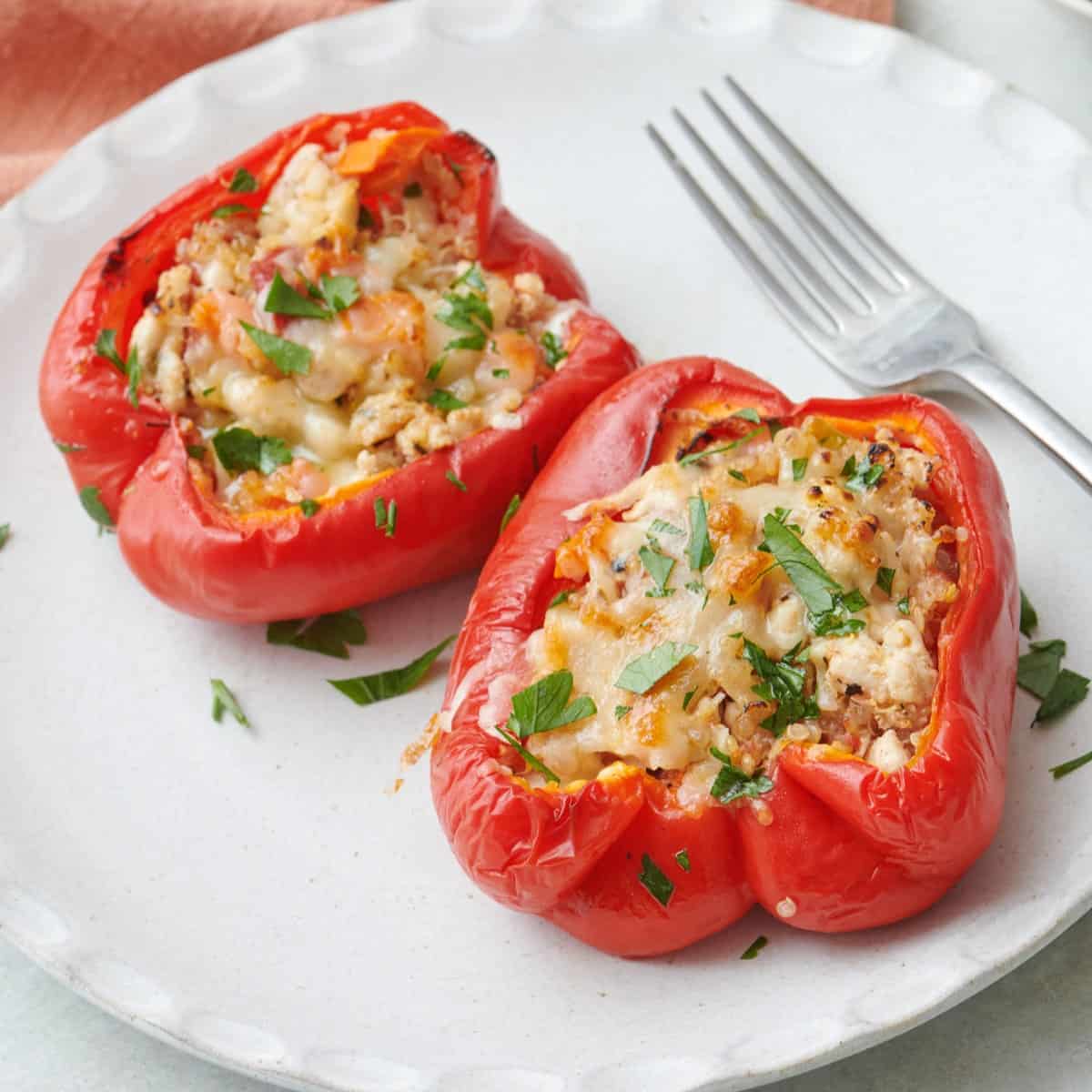
- Baked Salmon with Asparagus: Salmon is not only rich in protein but also provides heart-healthy omega-3 fats. Pair it with roasted asparagus or another veggie for a filling, nutritious meal.
- Turkey-Stuffed Bell Peppers: Lean ground turkey makes a perfect filling for roasted bell peppers. Mix it with quinoa or brown rice and some herbs for a simple, high-protein dinner.
- Lentil Soup: Lentils are a great plant-based protein source and make a hearty, comforting soup that’s easy on the stomach, especially after surgery.
High-Protein, Low-Carb Meal Examples:
| Meal | Protein | Carbs |
|---|---|---|
| Grilled Chicken with Avocado Salad | 35g | 8g |
| Baked Salmon with Asparagus | 30g | 5g |
| Egg and Veggie Scramble (with Cheese) | 22g | 6g |
| Turkey Lettuce Wraps | 25g | 7g |
High-Protein Snacks
Snacking can be tricky when you’re trying to eat healthily, but it’s totally doable if you plan ahead. Here are a few options that are high in protein and super easy to put together:
- Hard-Boiled Eggs: These are quick, portable, and rich in protein. You can even sprinkle them with a little salt and pepper or add some hot sauce for extra flavor.
- Hummus with Veggies: Hummus made from chickpeas is full of protein and fiber. Pair it with crunchy veggies like carrots or cucumber for a satisfying snack.
- Homemade Protein Bars: Oats, protein powder, and nut butter are easy ingredients for homemade protein bars. Store them in the fridge for a quick bite.
Quick Reference List of High-Protein Snack Ideas:
- Boiled Eggs (6g per egg)
- Greek Yogurt (10g per 100g)
- Cottage Cheese (14g per half cup)
- Almonds (6g per ounce)
- Hummus with Veggies (4g per 1/4 cup of hummus)
- Edamame (17g per cup, cooked)
High-Protein Desserts
Yes, you can still have dessert while focusing on protein! Here are some treats that won’t derail your progress.
- Chia Seed Pudding: Combine chia seeds with almond milk and a little vanilla extract, and let it sit overnight. In the morning, you’ll have a rich, pudding-like dessert that’s packed with protein and fiber.
- Protein Brownies: Yes, brownies can be healthy! Swap out some of the flour in a traditional recipe with protein powder, and you’ve got a delicious, guilt-free treat.
How to Make High-Protein Meals Work for You
Meal prepping can make sticking to a high-protein plan easier, especially if you’re busy or tired from recovery. Set aside a little time once or twice a week to cook a few basics like grilled chicken, quinoa, and roasted vegetables. You can mix and match these for different meals throughout the week.
Here’s an easy meal prep idea to get you started:
- Monday: Grilled Chicken with Roasted Veggies and Quinoa
- Tuesday: Salmon with Steamed Broccoli and Brown Rice
- Wednesday: Lentil Soup with a Side of Greek Yogurt
- Thursday: Turkey Lettuce Wraps with Hummus and Carrot Sticks
- Friday: Quinoa Salad with Chickpeas and Mixed Greens
- Saturday: Tofu Stir-Fry with Peppers and Cauliflower Rice
- Sunday: Baked Eggs with Spinach and Feta
Simple Protein-Boosting Add-ins
Sometimes, all you need to do is tweak a recipe slightly to get more protein. Here are some quick add-ins to boost the protein content of your meals:
- Chia Seeds: 5g per tablespoon (add to smoothies, yogurt, or oatmeal)
- Hemp Seeds: 10g per 3 tablespoons (add to salads or baked goods)
- Greek Yogurt: 10g per 100g (add to smoothies or eat plain)
- Protein Powder: 20-25g per scoop (add to shakes or baked goods)
- Nut Butters: 8g per 2 tablespoons (add to toast, smoothies, or fruit)
Common Questions About Protein for Weight Loss and Bariatric Patients
How Much Protein Should I Eat?
After bariatric surgery, your doctor may recommend aiming for 60-80 grams of protein daily. If you’re focused on weight loss, the amount can vary based on your weight and activity level. But remember, everyone’s needs are a little different, so always consult with your healthcare provider to determine what’s right for you.
What’s the Best Source of Protein?
There are many excellent protein sources, whether you’re eating meat or sticking to plant-based options. Lean meats, fish, eggs, dairy, beans, and legumes are all solid choices. Protein supplements can be helpful if you need an extra boost, but whole foods are always a great starting point.
Here’s a quick list of protein sources to refer to:
Animal-Based Protein Sources
- Lean Chicken Breast (26g per 3oz)
- Turkey Breast (25g per 3oz)
- Salmon (22g per 3oz)
- Eggs (6g per egg)
- Greek Yogurt (10g per 100g)
Vegetarian/Vegan Protein Sources
- Tofu (10g per 100g)
- Lentils (18g per cup, cooked)
- Chickpeas (14.5g per cup, cooked)
- Quinoa (8g per cup, cooked)
- Chia Seeds (5g per ounce)
Gluten-Free Protein Sources
- Quinoa (8g per cup)
- Buckwheat (6g per cup, cooked)
- Lean Meats (Chicken, Turkey, Fish)
- Greek Yogurt (10g per 100g)
- Eggs (6g per egg)
Low-Carb Protein Sources
- Grilled Chicken (26g per 3oz)
- Turkey (25g per 3oz)
- Shrimp (20g per 3oz)
- Egg Whites (3g per egg white)
- Whey Protein (20–25g per scoop)
Does Protein Help With Weight Loss?
Yes, protein can be a real game-changer when it comes to managing hunger and helping with weight loss. It helps you feel full longer, making it easier to stick to your meal plan and avoid unnecessary snacking.
Can You Build Muscle Without Protein Supplements?
Definitely! Supplements can be convenient, but you can build muscle just as effectively by eating a balanced diet rich in whole food sources of protein, such as lean meats, beans, tofu, and eggs.
Compassionate Support for Your High-Protein Journey
Eating a high-protein diet after surgery or during weight loss doesn’t have to be difficult or overwhelming. It’s all about finding meals that you enjoy, and that fit your lifestyle. Whether you’re prepping meals for the week, looking for new snack ideas, or just trying to find more ways to get enough protein, you’ve got plenty of options to choose from.
Remember, you’re not in this alone—take it step by step, and don’t be afraid to ask for support when you need it. You’ve got this!

